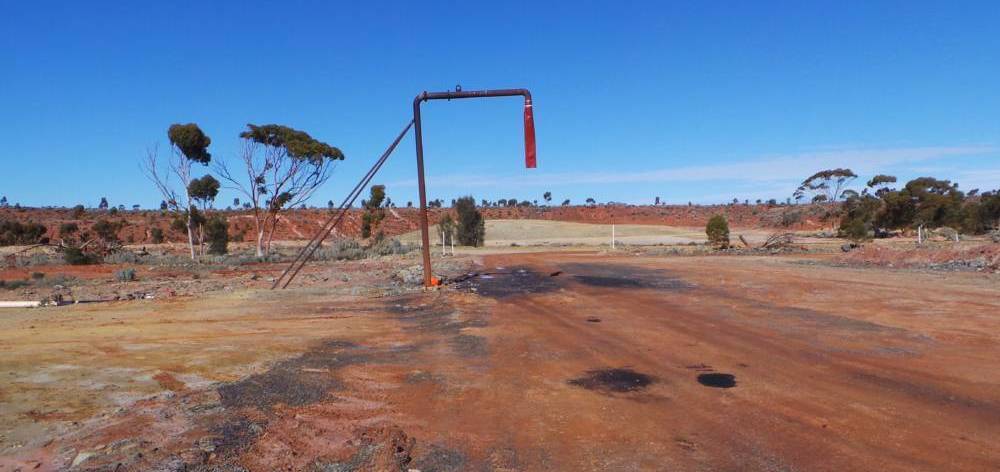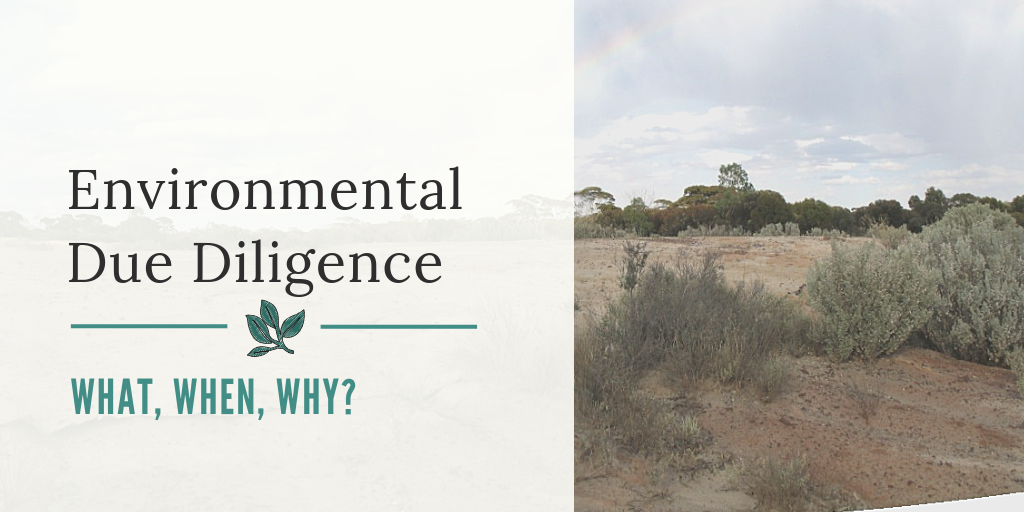Due diligence is the formal process of examining an asset, property or business before a transaction so the buyer can understand and manage potential risks and liabilities associated with the purchase. A due diligence assessment can be completed on many different aspects depending on the nature of the transaction and potential issues which may arise. This can include activities to examine financial matters, contracts, property and intellectual property, to name a few (Harroch 2014).

Environmental Due Diligence
An environmental due diligence assessment is one which is undertaken by a prospective buyer to examine environmental liabilities related to the asset, property or business of interest. The primary focus of the environmental due diligence is to examine the area of interest for potential environmental liabilities that would become their responsibility with the finalisation of the transaction. Environmental liabilities might include:
- Contamination to soil or groundwater that requires management or clean-up;
- Disturbance areas that require rehabilitation;
- Rehabilitation that requires maintenance or re-work;
- Infrastructure to be maintained or removed;
- Land tenure;
- Obligations relating to environmental matters;
- Fines or penalties relating to violations of environmental legislation, permits or approvals;
- Technical matters relating to the environment which could have potential ramifications or need specific management;
- Stakeholder perceptions and commitments;
- Surrounding environmental values and sensitive receptors that may influence the planned activities after acquisition;
- Legacy non-compliance events; and/or
- Legal proceedings relating to environmental management.
(Restorical Research 2016, Kennedy 2017)

The benefit of a good environmental due diligence occurring prior to purchasing of assets, property or a business helps the buyer to understand the true costs associated with the purchase or if there are any ‘hidden’ surprises that come with the acquisition.
What’s involved in an environmental due diligence?
The scope of an environmental due diligence will vary depending on the nature and level of detail required. In general, the due diligence includes a desktop review to understand:
- Publicly available information (such as heritage, native title, threatened species searches, land tenure);
- Site history and historic land use;
- Technical data and reports;
- Approvals, licences and permits;
- Monitoring data;
- Obligations, compliance records and potential non-compliances;
- Management systems including procedures and plans; and
- Geospatial data.
In some cases, the due diligence assessment may also involve a site visit by the specialist conducting the work. This can help to gain a feel for the environmental features and aspects which are on-the-ground. It also provides an opportunity for detailed discussions with various people to understand history, land use and other environmental matters. In some instances where a detailed due diligence is required, additional studies and assessments may be commissioned, such as soil surveys.
As an outcome from the due diligence assessment, a report is produced which summarises the findings of the environmental due diligence. This report will highlight the occurrence of potential environmental liabilities and provide an independent technical opinion on environmental matters. Depending on the scope of the environmental due diligence, it may also be appropriate to include estimated costings for clean-up, maintenance and rehabilitation activities.

Why undertake an environmental due diligence Assessment?
Environmental due diligence assessment is an essential tool for any buyer looking to purchase a business, land, property or other existing assets. First and foremost, it provides a way for the buyer to understand the true costs associated with the purchase, particularly in relation to environmental matters such as clean-up of contamination and rehabilitation. This can assist the buyer throughout the purchasing process to bargain with the seller or even to determine if the risk of purchase is too high based on existing environmental liabilities.
Who can complete an environmental due diligence?
If you are a buyer currently in the process of examining an asset, property or business for purchase, it is advisable to engage an environmental specialist to assist with an environmental due diligence assessment. Integrate Sustainability has completed many environmental due diligence assessments across Western Australia. We have a core team with a detailed knowledge of the environmental issues commonly encountered with mining and development projects in WA. Please contact us to discuss your individual needs with us further.
References
Harroch, Richard. 2014. “20 Key Due Diligence Activities In A Merger And Acquisition Transaction.” Forbes. https://www.forbes.com/sites/allbusiness/2014/12/19/20-key-due-diligence-activities-in-a-merger-and-acquisition-transaction/#680661e64bfc.
Kennedy, Crystal. 2017. “5 tips for environmental due diligence in business transactions.” Thompson Coburn. https://www.thompsoncoburn.com/insights/publications/item/2017-03-02/5-tips-for-environmental-due-diligence-in-business-transactions.
Restorical Research. 2016. What is Environmental Due Diligence and Why is it Important? March 22. Accessed July 8, 2019. https://restorical.com/what-is-environmental-due-diligence-and-why-is-it-important-2/.

